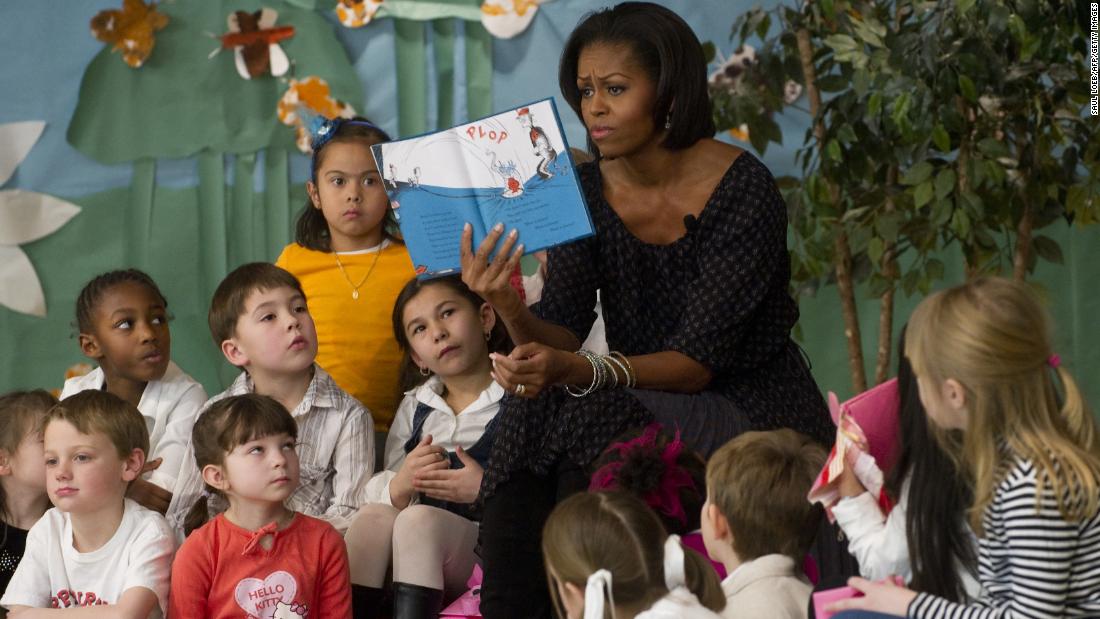https://xenagoguevicene.livejournal.com/
A smear campaign against Professor Piers Robinson, chair in politics,
society and political journalism at the University of Sheffield, has
been renewed with an article in the
Huffington Post.
Robinson is one of a small number of academics and independent
journalists to challenge the official narrative around the “war on
terror,” especially regarding the civil war in Syria. Along with
Professor Tim Hayward (environmental political theory, University of
Edinburgh) he is a founding member of the Working Group on Syria,
Propaganda and Media (WGSPM). Established to facilitate “rigorous
academic analysis” of media reportage of the Syrian war, it investigates
the role of propaganda more broadly in shaping public perception of
conflicts and its connection to western geo-strategic objectives.
Earlier this year, on April 14, Robinson, Hayward and others were viciously attacked by Rupert Murdoch’s
Times
newspaper as “Apologists for Assad working in British universities,”
and as “Assad’s Useful Idiots.” This was in response to the WGSPM
shining the spotlight on the role of the western-backed Syrian White
Helmets and its leading role in allegations that Syrian President Bashar
al-Assad was using chemical weapons in the conflict. Just hours before
the smear appeared, Britain and France had joined the US in launching
air strikes on Syria—citing one such alleged chemical attack in Douma on
April 7.
Around the same time, the
Huffington Post ran a series of
smears targeting Robinson, Hayward and investigative journalist Vanessa
Beeley—all penned by senior editor Chris York. In May, York again
smeared the three as “pro-Assad activists” in an article on Labour-run
Leeds City Council’s
banning a Media on Trial event at which they were speaking. York implicitly approved the ban and noted that a
Huffington Post report earlier in the week had “drawn attention to the event...”
An article by York, published December 4, is, if anything, even more
craven and desperate than his earlier pieces in that it dispenses with
any pretence of objectivity. Given the subject area of those under
attack, York’s article is a case-study in embedded propaganda.
Under the headline, “This professor teaches journalism at a top UK
University. He is also a 9/11 Truther,” York disparages Robinson as a
supporter of “long-discredited conspiracy theories about the 9/11 terror
attack.”
York
does not explain what “long-discredited conspiracy theories” he is
referring to. All he writes is that Robinson wrote, regarding the book
9/11 Unmasked
by David Ray Griffin and Elizabeth Woodworth, that it represents “a
serious challenge for mainstream academics and journalists to start to
ask substantial questions about 9/11” in order to “search for the facts
and speak truth to power.”
Robinson makes no specific claims on either 9/11 or on the substance
of Griffin and Woodworth’s book. When asked by York about his own views
on the 9/11 attacks, Robinson replied simply, “My position, as has been
the case for some time, is that [conclusions detailed in
9/11 Unmasked
] demonstrate beyond reasonable doubt that significant parts of the
official narrative are very likely to be incorrect. It is no longer
tenable for academics and journalists to avoid asking probing questions
about the possible involvement of state actors in the 9/11 attacks. 9/11
requires further analysis and investigation and this is a position I
share with many other academics.”
Robinson is being attacked for his research on Syria and not his opinion of
9/11 Unmasked
and the findings of the 23 individuals involved in the 9/11 Consensus
Panel on which it is based. It is the raising of probing questions
regarding the predatory aims and activities of imperialism underlying
the “war on terror” that is verboten for the official propagandists for
the state apparatus of Britain and the US―those whom
internationally-acclaimed investigative journalist and documentary
filmmaker John Pilger rightly described as “Vichy journalists.”
The Murdoch-commissioned smear had sinisterly declared that while a
“society founded on Enlightenment principles of liberal rights and free
expression treats untrammelled academic inquiry as sacrosanct,” for
those with whom the
Times disagreed—the “Assad apologists”—such
principles did not apply. “The universities who unwittingly provide
cover for these agents of disinformation and cheerleaders for despotism
have a case to answer,” the
Times asserted, effectively demanding the sacking of Robinson and his fellow academics.
The threats and slanders failed, so York has returned to the fray.
“The University of Sheffield Department of Journalism Studies is one of
the most prestigious in the country,” York states, before asserting that
Robinson’s “work has been described as ‘conspiracy-theory driven’,
‘completely insulting’ and of having ‘no interest in truth or justice’
by academics speaking to
HuffPost UK.”
York in fact cites just three academics to back up his claims—two in
the US. Dr. Yasser Munif, at Emerson College, Boston, is quoted telling
the
HuffPost UK: “Robinson and people like him are trying to
transpose what happened in the Iraq War onto what’s happening with the
Arab uprisings of 2011-2 and are thereby denying the agency of the Arab
population...”
Munif, originally from Syria, has condemned those on the “left” who
oppose US action against Assad as holding a “kind of neutralist
position... [which] is a form of tacit support to the Syrian regime
because it has invited a number of different state actors, Russia and
Iran and others, Iraq, and in a way, Lebanon to play a major role.” Left
opponents of regime-change are guilty of not recognising that the
Syrian civil war involves a popular nationalist uprising and of
“reducing all politics to a state-centric geopolitics.”
Nader Hashemi, director of the Center for Middle East Studies at the
University of Denver, attacks Robinson and “his friends” as having “no
interest in truth or justice... The administrators of the university
that he teaches at have to be presented with this evidence. Someone
who’s supposed to be objective and teaching propaganda is himself a
propagandist.”
Hashemi’s suggestion that a fellow academic should be dismissed for
his teaching speaks volumes as to his attitude towards academic research
and free speech. Hashemi himself proselytises in favour of the Iranian
bourgeois opposition Green Movement, formed in support of Mir Hossein
Mousavi. Defeated in Iran’s 2009 presidential elections, Mousavi’s
movement was backed by powerful sections of the Iranian establishment
and supported by Washington, the US media and the European powers as a
potential “colour revolution.”
Hashemi has argued that the US can be a positive force in Iran by
elevating “the question of democracy and human rights, and plac[ing] it
at the center of any future engagement with Tehran.”
The other academic cited is Lydia Wilson, described as an Oxford and Cambridge research fellow and editor of the
Cambridge Literary Review.
She is even more forthright in her insistence that Robinson should be
sacked. “It is ridiculous that Piers Robinson is teaching propaganda,”
she told
HuffPost UK. “The most troubling thing for me is how
did he get this job? It’s not hard to uncover this man... It’s dangerous
to students—he’s working in a journalism department and he can’t
analyse journalism sources.” York fails to make clear that Wilson is a
research fellow at the Centre for the Resolution of Intractable
Conflict, University of Oxford, whose members work intimately with
figures at the highest echelons of Middle East government policymakers
in Britain, the US and Europe.
That York’s piece is a McCarthyite smear is made clear in his
complaint that “Robinson’s lectures and public appearances are heavily
critical of western governments and media, and he often appears on
Kremlin-backed channels such as RT and Sputnik.” Robinson is attacked
for suggesting that anti-Russian propaganda is being used to “distract
from the west’s ‘aggressive regime change strategy’ in the Middle East.”
While those probing British government policy are to be silenced, the
Huffington Post
rolls out the red carpet for arch proponents and facilitators of
imperialist war. The other authorities cited by York as inveighing
against “propaganda” are none other than retired US General Wesley Clark
and former head of Britain’s foreign intelligence agency MI6, Sir
Richard Dearlove.
Clark was the commander in charge of Operation Allied Force, the NATO
bombing of Yugoslavia in 1999, in a war aimed at dismembering the
country and destabilising the Balkans carried out under the banner of
“humanitarian intervention.” Dearlove oversaw Britain’s secret service
during the invasion of Afghanistan and the pre-emptive war on Iraq,
funnelling what the Chilcot inquiry politely described as “flawed
information” to justify war, such as the notorious September dossier and
Iraq “dodgy dossier” justifying war based on lies that Baghdad
possessed “weapons of mass destruction.”
This included using a
description of Iraqi chemical weapons that its “source” drew directly
from the plot of the movie,
The Rock, a fact known by MI6 and
concealed for six months prior to the 2003 war. Yet both Clark and
Dearlove are quoted approvingly by York denying that their actions have
anything to do with regime change and accusing Robinson of “wildly
misinterpreting” them.
Robinson and Hayward have both noted in tweets that the
Huffington Post
article coincided with the WGSPM work on the Integrity Initiative (II),
launched by the Institute of Statecraft in 2015. Documents leaked by
internet hackers of Anonymous reveal how the supposedly independent
think-tank is a Foreign Office funded black op, responsible for
spreading fake news to further the geo-strategic interests of Britain’s
financial oligarchy.
Of note in the leaked documents are the descriptions of how the II
operates “clusters” of like-minded politicians, military personnel,
academics and journalists from Britain and through Europe—to spring into
action against anyone deviating from the official line in favour of
militarism and war. This is especially critical, not only with regards
to the
Huffington Post smear, but the
Guardian’s
latest politically-motivated fabrication against WikiLeaks founder
Julian Assange. Its claims that Assange met with former Trump campaign
manager Paul Manafort were intended to bolster the spurious allegation
that the framed-up journalist was a Russian stooge. The story has since
been thoroughly discredited. While decrying “fake news”, publications
such as the
Huffington Post and the
Guardian are, in fact, busy manufacturing it.
On Youtube - Prof Piers Robinson on Sky TV - https://www.youtube.com/watch?v=PHiAZfpXr5Q
Archive Outline.com














